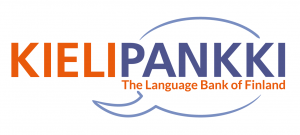”I think open research data promotes honesty and transparency in science. Once a data set is well described, citable and available on clear terms, it is easy to discover and to reuse, and studies done on the data set are easier to replicate and to improve on”, says Mietta Lennes, Project Planning Officer for FIN-CLARIN consortium, which coordinates the Language Bank of Finland (Kielipankki). Lennes is one of the speakers at the webinar event ”What it takes: Open your research data” that takes place on 25 March 2021.
Mietta Lennes (TUHAT, ORCID, @miettalennes) works as a Project Planning Officer for FIN-CLARIN consortium at the University of Helsinki, and she is one of the speakers at the webinar event ”What it takes: Open your research data” that takes place on 25 March 2021.
In this interview Lennes shares her thoughts on the Language Bank of Finland (Kielipankki), the research data services and the future of open data.
Mietta Lennes, could you tell shortly about yourself and your work on open data?

”I work as a Project Planning Officer for FIN-CLARIN at the University of Helsinki. FIN-CLARIN is the national consortium of universities and research organizations that coordinates the Language Bank of Finland (Kielipankki). The Language Bank of Finland offers corpora, tools and services for researchers who need research materials that contain text or speech. Researchers can also deposit their data or tools for distribution via the Language Bank. My job is to support researchers in using resources in the Language Bank of Finland and in managing and sharing their data. I also teach open online courses.”
What do you see as the greatest benefit of opening research data?
”I think open research data promotes honesty and transparency in science. Once a data set is well described, citable and available on clear terms, it is easy to discover and to reuse, and studies done on the data set are easier to replicate and to improve on. In addition, researchers can receive credit for their data publications as well as for their regular scientific papers.”
If you would have one wish that would advance opening data – regardless of costs! – what would it be?
 ”Researchers need to be supported by sufficient and permanent human resources: people that are dedicated to helping both individual researchers and research teams in everyday data management and methodological issues. There should be a familiar and knowledgeable person – a ”data doctor” – for researchers to go to whenever they have questions about best practices or about finding new and innovative ways to publish their research. And the data doctor should have time to help in a concrete fashion, even as a member of the research team if necessary.”
”Researchers need to be supported by sufficient and permanent human resources: people that are dedicated to helping both individual researchers and research teams in everyday data management and methodological issues. There should be a familiar and knowledgeable person – a ”data doctor” – for researchers to go to whenever they have questions about best practices or about finding new and innovative ways to publish their research. And the data doctor should have time to help in a concrete fashion, even as a member of the research team if necessary.”
Researchers should be able to spend their valuable time on analyzing and enriching their data rather than on worrying about legal issues or data curation.
How do you see opening data in the future and the benefits arising from it?
”The number of data publications is rapidly increasing and many researchers can already appreciate well-organized data and useful metadata. Nevertheless, researchers should be able to spend their valuable time on analyzing and enriching their data rather than on worrying about legal issues or data curation. In the future, the processes of organizing, describing, and opening data will hopefully become clearer, more motivating and less stressful for researchers, and more widely shared across different fields and research institutions.”
Interview series on open data (#Datarepo2021):
- Open data as the foundation of interdisciplinary research – interview with Francesca Morello (23.3.2021)
- Open data in regular use as part of work – interview with Jouni Tikkanen (22.3.2021)
- The importance of infrastructures and unprecedented potential of open data – interview with Tuomas Alaterä (18.3.2021)
- Researchers need tools, services and ”data doctors” to manage and open their data – interview with Mietta Lennes (16.3.2021)
- Mobilising data for research and decision-making – interview with Kari Lahti (11.3.2020)
- The beauty of the unknown – why open your research data? (17.2.2020)

